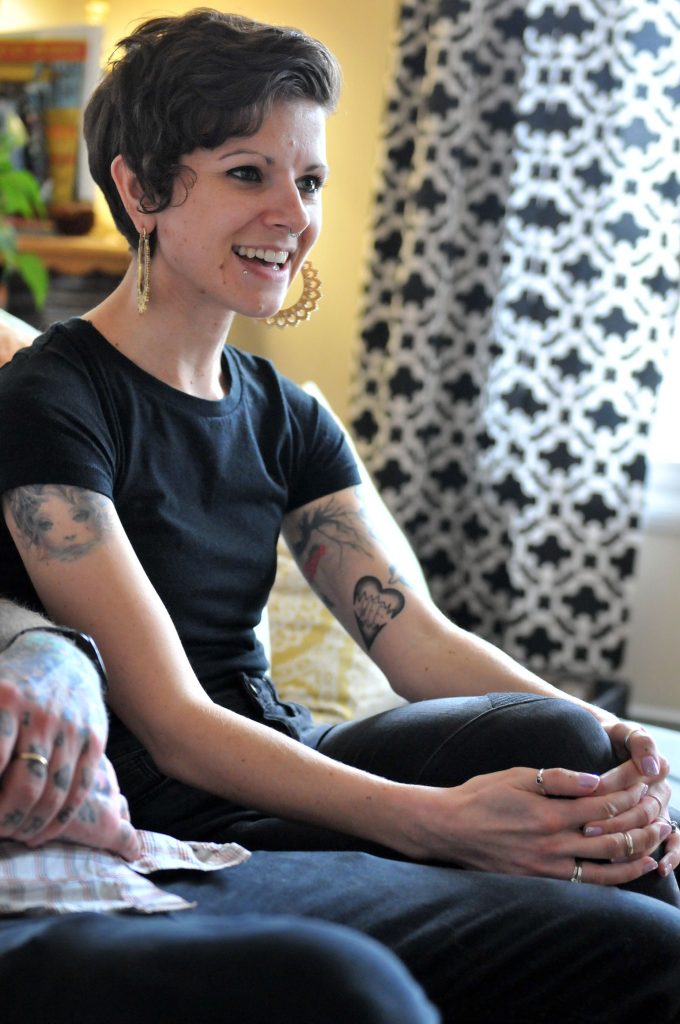Dear Yana,
As a polyamorous person who’s having much more success building new connections these days, I worry sometimes that I am dating from a feeling of not enoughness-ness, in a way that keeps me too focused on the new and the possible, and not enough with the present partnerships I have.
Do you have any advice for discerning between healthy, grounded exploration versus the unquenchable thirst for more?
Thanks,
Seeking More
Dear Seeking,
Sometimes my job as a couples therapist includes working with clients (both monogamous or non-monogamous) who are contemplating ending a relationship. When people are trying to decide whether or not they want to ride out a particular storm, it can be common for one or both of them to fantasize about what it might be like to end one relationship in order to either move onto or open themselves up to another more compatible, interesting, or even just novel connection.
Though non-monogamous clients rarely feel like they “have to” end one connection in order to pursue another, the following attachment-based concept remains the same: we will be reliably “taking our baggage with us when we go.” Not only will we bring the same past, behaviors, and triggers to our next relationship/s we will also be moving through predictable developmental stages that all relationships travel with our next partner/s.
The Developmental Model of Couples Therapy is a model designed by Ellyn Bader and Peter Pearson (couplesinstitute.com) and can be read about extensively in Winifred M. Reilly’s book “It Takes One to Tango.” In this model, “predictable couples stages” are delineated that move from the la-la-land limerence phase of early relationships (that brain-chemical-fueled early stage of a relationship that can quite literally feel addicting or intoxicating) to the mid- and late-stages of ongoing relationships that involve managing differences, conflict, and personal and relational growth. (You can read much more about navigating these stages in your sex life in my upcoming book “Hot and Unbothered: How to think about, talk about, and have the sex you really want,” yanatallonhicks.com/preorder).
In my work I see a lot of polyamorous folks who over-date from a place of limerence-chasing. Can you blame them? Limerence feels great! You’re getting to know a new person, you’re getting to explore a new relational or sexual dynamic, and you’re getting to unleash exciting parts of yourself while you’re at it. Even better, your brain and body is helping you feel compelled to chase that “high” by releasing chemicals such as oxytocin and dopamine when you do spend time with this new person, creating a physiological experience akin to doing an addictive drug.
You, Seeking, describe your dating drive as coming from a “feeling of not enough-ness” and I’m not entirely clear about whether you mean this as you can’t get enough of dating new people or if you yourself feel like you are not enough. Whether or not you meant the latter, I would encourage you to explore that angle as you ask yourself your later questions about how to figure out if your dating cadence is coming from a place of health and balance or if it’s another way to “chase a dragon” in the hopes to fill an internal void.
Do I think that all polyamorous people are dating multiple partners in order to fill a void? Absolutely not. However, I do think that all people whether dating monogamously or non-monogamously have the capability of dating from the motivation of proving to themselves that they are worthy, loveable, and wanted in a way that’s attempting (and generally failing) to resolve past traumas and attachment wounds from other relationships — whether those are past romantic relationships or our original relationships with our early caregivers.
I don’t believe that you have to “love yourself before you can love anybody/anybodies else” but rather I think it important to understand where your motivations to date are coming from. What is uncomfortable for you about sitting still and nurturing your current relationships? What do you get out of chasing the limerence high? And when and how might you know that you are enough, whether you have zero or 100 partners?
A polyamorous-competent therapist can help! (Find one on polyfriendly.org).
Yana Tallon-Hicks is a relationship therapist, sex educator, and writer living in the Pioneer Valley. You can find her work and her professional contact information on her website, yanatallonhicks.com.



